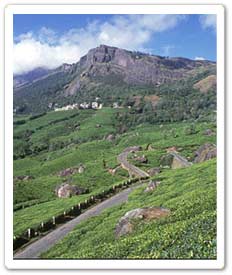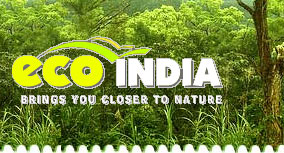 Few
of the terms related to Eco-tourism are
Few
of the terms related to Eco-tourism areAdventure Tourism
It is a nature tourism that involves a degree of risk taking (Honey, 2002).
Best Management Practices
The Rainforest Alliance helps define and promote the use of best management practices that are a series of principles and concrete recommendations that can be implemented by different land-use sectors. These practices are based on the outcomes of impact assessments, scientific research, pilot testing projects, adaptation to local realities and multistakeholder discussions. These best management practices can be used as the basis for the development of policies, codes of conduct and public awareness materials, and for the implementation of technical assistance, training and certification (Rainforest Alliance).
Best Practice(s)
Best Practice is used to designate highest quality, excellence, or superior practices by a tourism operator. The term is widely used in many award and certification programs, as well as academic studies, to designate the best in a particular class or a leader in the field. “Best,” however, is a contextual term. There is no set standard of measurement, and the term is often loosely or ill defined (Honey, 2002).
Certification
Certification is a voluntary procedure that assesses, monitors, and gives written assurance that a business, product, process, service, or management system conforms to specific requirements. It awards a marketable logo or seal to those that meet or exceed baseline standards, i.e., those that at a minimum comply with national and regional regulations and, typically, fulfill other declared or negotiated standards prescribed by the program (Honey, 2002).
Commercialization Chain
Commercialization Chain is a map of the direct and indirect interactions between consumers and local service providers including all intermediaries, sources of information, and means of communication (Honey, 2002).
Cultural Tourism
Cultural Tourism is travel for the purpose of learning about cultures or aspects of cultures (Honey, 2002).
Canopy Walkway
A constructed bridge walkway through the tree tops of a forest.
Conservation Enterprises
Income generating activities that focus on conserving natural resources and ecosystems.
Ecosystem
A dynamic complex of plant, animal, fungal and microorganism communities and their associated non-living environment interacting as an ecological unit.
Ecotourism
Responsible travel to natural areas which conserves the environment and sustains the livelihood of local people. (TIES website, March 6, 2003).
Ecotourism Activities
Activities included in a tour that are designed to entertain clients and are coordinated by a professional guide or interpreter. Over 80 activities have been listed for ecotourism, such as birdwatching, hiking, diving, kayaking, participating in cultural events, photography, and mountaineering.
Ecotourism Product
A combination of resources, activities, and services, which are sold and managed through professional tour operators.
Ecotourism Resources
Natural and cultural features that attract visitors, such as landscapes, endemic or rare flora and fauna, cultural festivals, and historical monuments.
Ecotourism Services
Tourism services such as transportation, food, lodging, guiding and interpretation services which cause minimal damage to the biological and cultural environments and promote a better understanding of the natural and cultural history of an area.
Endemism
The level of species that occur naturally only in a specific region or site.
Ecolabeling
Ecolabeling describes a scheme in which a product, company, service, or destination may be awarded an ecological label on the basis of its “acceptable” level of environmental impact. The acceptable level of environmental impact may be determined by consideration of a single environmental hurdle or after undertaking an assessment of its overall impacts. Ecolabeling sometimes refers to the natural environment only; sometimes it takes into account social and cultural environments as well. An ecoquality label marks the state of the environmental quality, such as water quality for beaches or quality of wildlife in national parks (Honey, 2002).
Ecotourism “lite”
Ecotourism “lite” involves a business adapting sensible but small, cosmetic, and often cost-saving practices that are typically marketed as major innovations (Honey, 2002).
Geotourism
Tourism that sustains or enhances the geographical character of a place--its environment, culture, aesthetics, heritage, and the well-being of its residents.
Greenwashing
Greenwashing is a term used to describe businesses, services, or products that promote themselves as environmentally friendly when they are not (Honey, 2002).
Stakeholders
Individuals who have a vested interest in development, including community members; environmental, social, and community NGOs; natural resource, planning, and government officials; hotel owners, tour operators, guides, transportation providers, and representatives from other related services in the private sector.
Sustainable Development
Development that meets the needs and aspirations of the current generation without compromising the ability to meet those of future generations.
Sustainable Tourism
Sustainable Tourism is, according to the World Tourism Organization, “envisaged as leading to management of all resources in such a way that economic, social, and aesthetic needs can be fulfilled while maintaining cultural integrity, essential ecological processes, biological diversity, and life support systems” (Honey, 2002).
Leakages
Leakages are funds that do not reach the destination country. This occurs primarily when the tourism operators through which packages are purchased do not involved local businesses. In these cases, very few of the funds generated by the tour operators stays within the community being visited remaining instead in the home country of the tout operator.






